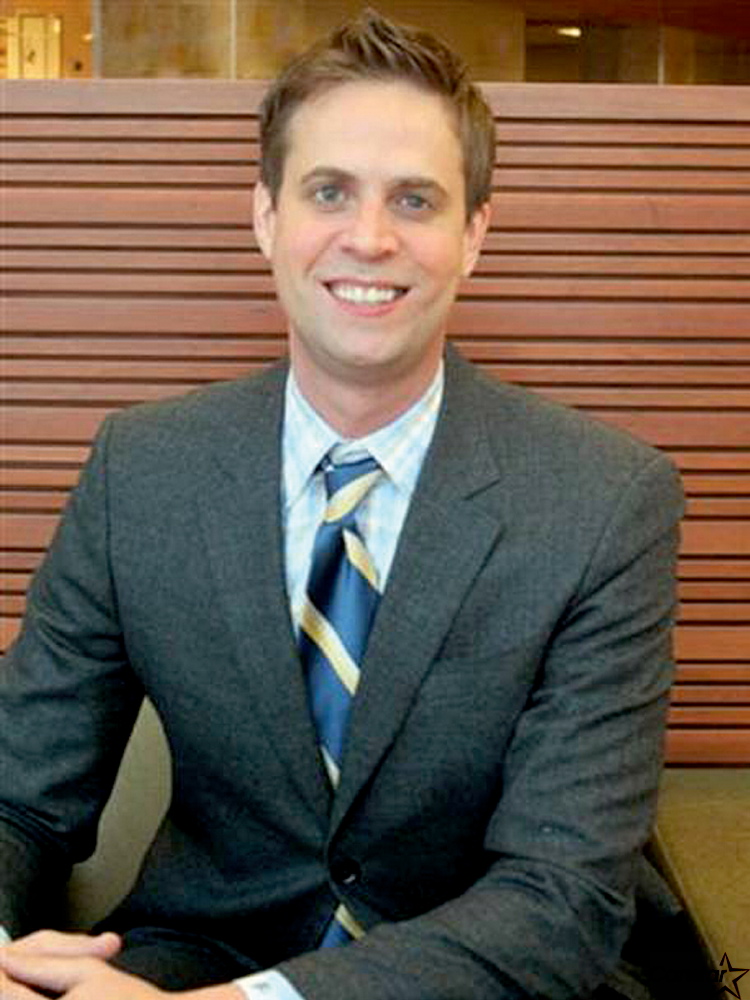Showing the way forward on kidney health
Advertisement
Hey there, time traveller!
This article was published 16/01/2013 (4627 days ago), so information in it may no longer be current.
A young doctor’s commitment to improving the lives of those with kidney-related illnesses has been nominated for an award in recognition of his work.
Dr. Paul Komenda, a nephrologist by specialty at Seven Oaks General Hospital, has been put on the shortlist for the Future Leaders of Manitoba’s (FLM) annual awards on Jan. 24, being nominated in the business/professional category. The awards are bestowed by FLM with the support of Business Council of Manitoba and the Winnipeg and Manitoba chambers of commerce.
“It’s very rewarding just to be nominated,” Komenda said in reaction to the news.

Komenda, 36, who resides in St. Boniface, is intensely busy as of late. In addition to his duties at Seven Oaks, he also acts as an assistant professor in the nephrology section at the University of Manitoba’s faculty of medicine.
As a physician, much of Komenda’s recent work has revolved around devising more convenient, home-based ways to treat those who suffer from kidney-related ailments. This includes home hemodialysis, a program Komenda created at the hospital in 2009.
“That really affords them the best quality of life. It allows them to be independent at home and do the dialysis while they sleep at home,” Komenda said.
For Komenda, implementing such methods on a wider scale is of high importance, and his primary clinical interest.
“We’re trying to find more innovative ways to keep people at home,” he said.
“With doing it at home, they can do it longer, slower, it’s less of a shock to the system. You get better health outcomes with that. In addition…it seems to be significantly cheaper to the health care system to keep them at home, even though you’re buying them a machine and so on.”
His work has led him to become a sought-after speaker on the subject. He’s currently part of a national consortium which discusses the issue on a large scale, and he recently chaired a session for the American Society of Nephrology in San Diego, Calif.
Komenda wears many hats at the hospital. In addition to working in its dialysis unit, he’s also chair of the hospital’s research board, and has been a member of the hospital foundation’s board for the past year.
Komenda has an MBA in Health Administration in addition to his clinical training, and is currently part of a project to examine how to increase the speed and efficiency with which patients are treated.
“A lot of my work is in the epidemiology and the economics of kidney disease, in addition to improved service delivery and efficiency,” he said.
Through a partnership with the British Columbia Renal Agency, Komenda will also be involved with the implementation of electronic renal health records at Seven Oaks.
Komenda was attracted to nephrology as a specialty in part because, since kidney patients are often treated on an ongoing basis, it provided the chance to have a deeper relationship with patients Komenda sought.
“In nephrology, because we deal with chronic dialysis therapies, we almost tend to assume the role of primary caregiver,” he said.
His university work is mostly research-based, though he does spend some time educating senior students in the nephrology section. Komenda said the two roles he plays— physician and researcher— tend to inform each other. However, it’s at the clinic where he feels he’s most needed.
“I do find I really enjoy the patient interaction, I don’t think I’d want to be less than a 50% clinician,” he said.
“I find a lot of my research hypotheses and questions come from my interactions with patients. I did the majority of the length of my training in order to take care of patients at the bedside. I find that very rewarding, giving back to the community on a very personal level,” he said.




